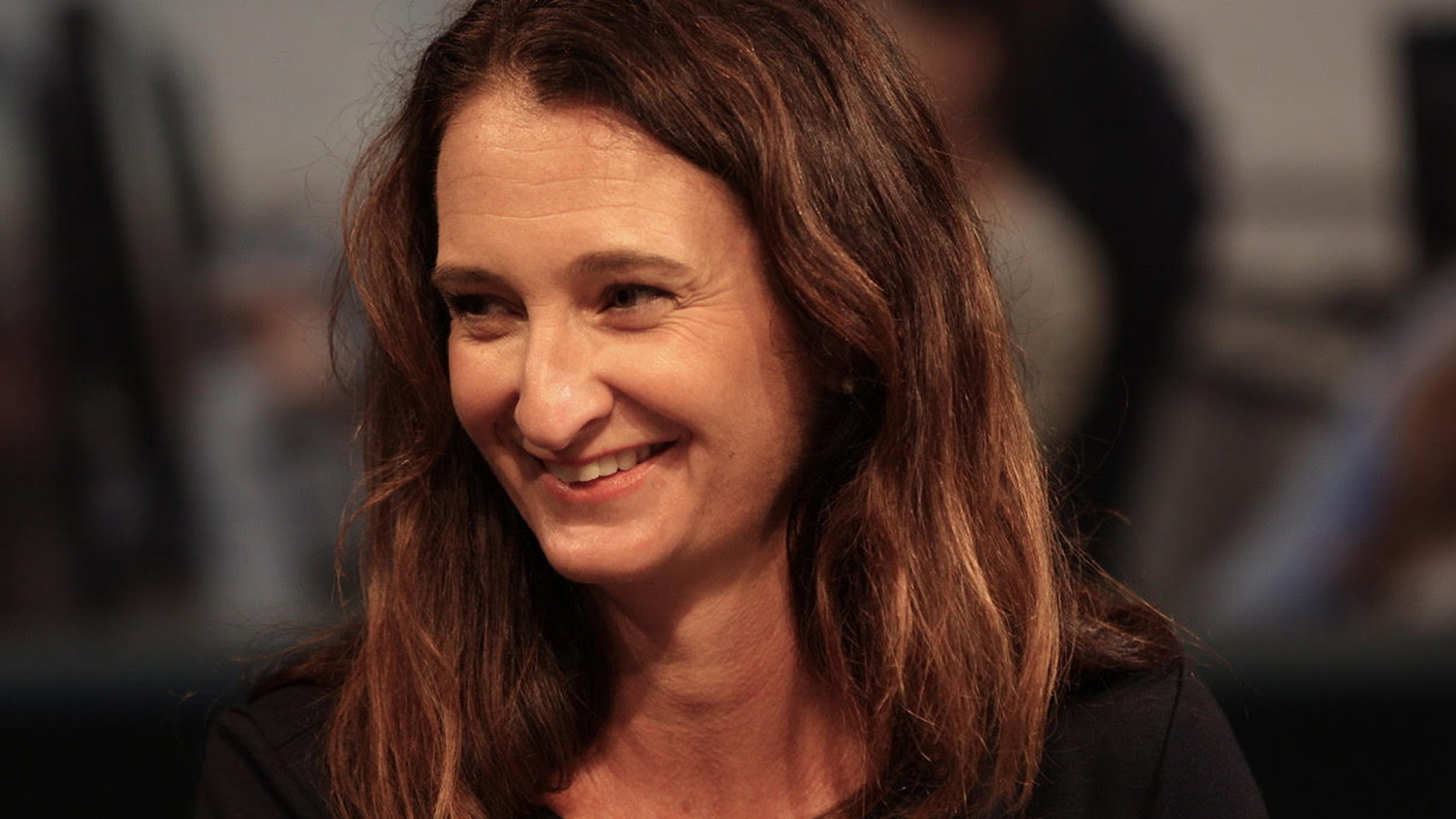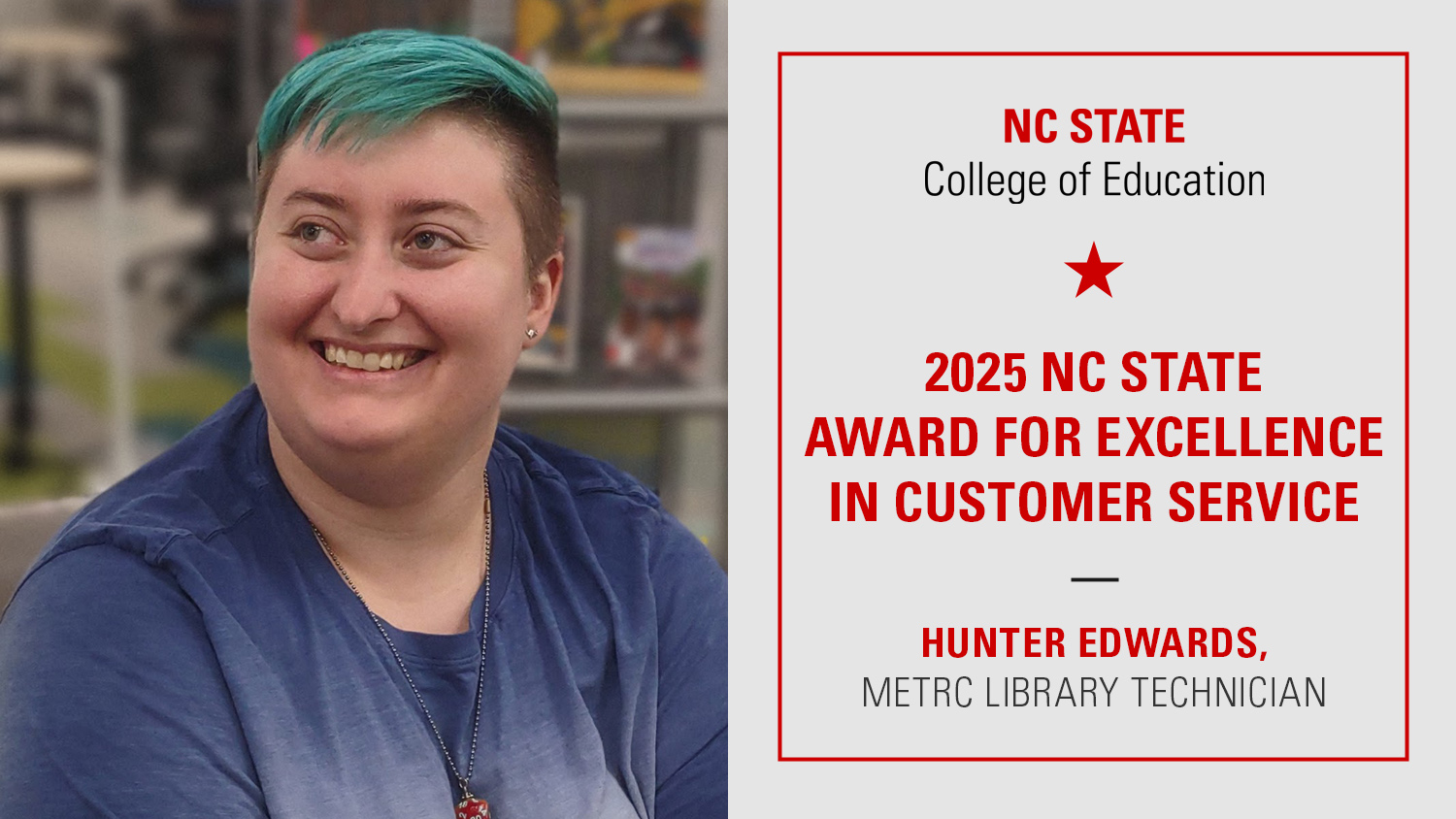Article, Spencer Foundation Grant Aim to Prove Benefits of Teacher Inquiry Through Action Research

Could students benefit when educators engage in intentional inquiry about the impact their teaching practices have on students? Meghan Manfra, Ph.D., has spent more than a decade studying how inquiry and action research can improve teacher learning and student outcomes.
In the American Educational Research Association’s Review of Research in Education article “Action Research and Systematic, Intentional Change in Teaching Practice,” Manfra, an associate professor of social studies education at the NC State College of Education, shows how teachers who implemented action research in the classroom were able to improve learning outcomes in English Language Arts, mathematics, science and social studies education.
“My research found that when teachers adopt an inquiry stance in their work — that is, they engaged in systematic and intentional inquiry through action research — they were more likely to engage their own students in inquiry-based learning,” she said. “For students, this led to a deeper understanding of content and the development of important cognitive skills including critical thinking and problem solving.”
Manfra notes that action research often leads to changes in teacher learning, particularly through improvements in educators’ pedagogical content knowledge. However, many teachers are often intimidated by the idea of conducting their own research projects because they are regularly pressed for time.
Her upcoming research methods text, Action Research for Classrooms, Schools and Communities, will offer recommendations for teachers beginning action research. A recent $49,883 grant from the Spencer Foundation will carry her work in the field even further.
Through the project, “Changing Teaching Practice: Integrating the C3 framework through Action Research,” Manfra and co-PI John Lee, Ph.D., hope to explore the extent to which engaging in action research helps teachers navigate instructional shifts associated with integrating inquiry into the classroom as they also integrate the College, Career and Civic Life (C3) Framework into instruction.
[spotlight-box label=”” img=”” heading=”Read More About the C3 Framework” cta=”Read More” url=”https://ced.ncsu.edu/news-new/news/2018/03/29/how-the-college-career-and-civic-life-framework-is-changing-social-studies-education/”]
John Lee, Ph.D. was one of the main authors of the C3 Framework, which marries the common goals of succeeding in college life and a career with a third goal: being an engaged citizen. It has gained national attention and been implemented in instruction around the world since it was first published in 2013.
[/spotlight-box]
Eight social studies teachers will conduct collaborative action research about the inquiry design model of the C3 Framework and the project team will use qualitative research methods to document their experiences and outcomes. The ultimate goal is to develop a scalable model of professional development that focuses on collaborative action research, Manfra said.
“Since the teacher participants will be working as co-researchers, conducting action research in their own classrooms, we also hope to learn more about student learning outcomes when teachers integrate inquiry into social studies classrooms,” she said.
Manfra said she and Lee, a professor of social studies education and head of the Department of Teacher Education and Learning Sciences, hope the grant-funded project will enable them to provide answers for persistent questions in the social studies field as well as provide support for teachers who implement action research.
“Receiving the Spencer grant creates an opportunity to engage a cohort of social studies teachers in a collaborative action research study,” Manfra said. “Although action research has been integrated into the field in the past, this will be the first study to engage a group of teachers in systematically and intentionally studying their integration of inquiry-based teaching.”
Three Takeaways from Manfra’s Work on Action Research:
- Universities and schools must collaborate to promote the implementation of action research: “University researchers can take the lead in disrupting the traditional two-communities approach to research that separates researchers from practitioners. We can do more to engage practitioners as co-researchers, exploring issues of deep importance for the communities we serve.”
- The benefits outweigh the constraints of implementing action research: “When preservice and experienced teachers conduct action research, they study their own practice and its effectiveness relative to student learning outcomes. Since the action research cycle is iterative, they can integrate teaching strategies they learn in their teacher education courses or from research to develop their own understanding about the affordances or limitations of those practices. As a result, they become knowledge-producers, contributing to our theoretical understanding about what works in the classroom.”
- Teachers pressed for time can try “short-cuts” to get the process started: “These include keeping a reflective journal, conducting short interviews with students, analyzing student work and pursuing lesson study. As they work through these reflective exercises, teachers will hopefully begin to see that data is all around them and that data collection and analysis can become a useful activity in their professional lives.”
[button]
Read the Article
[/button]
- Categories:


